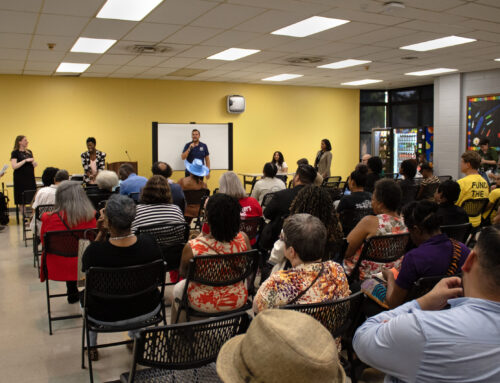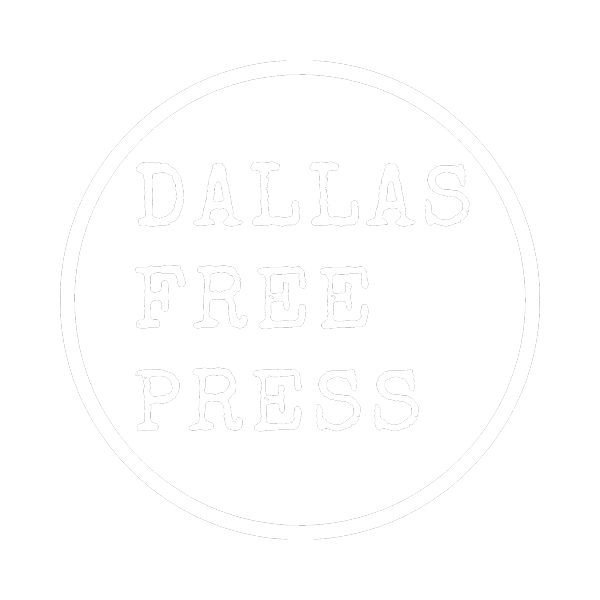Vaccine hesitancy, not availability, now South Dallas’ largest barrier
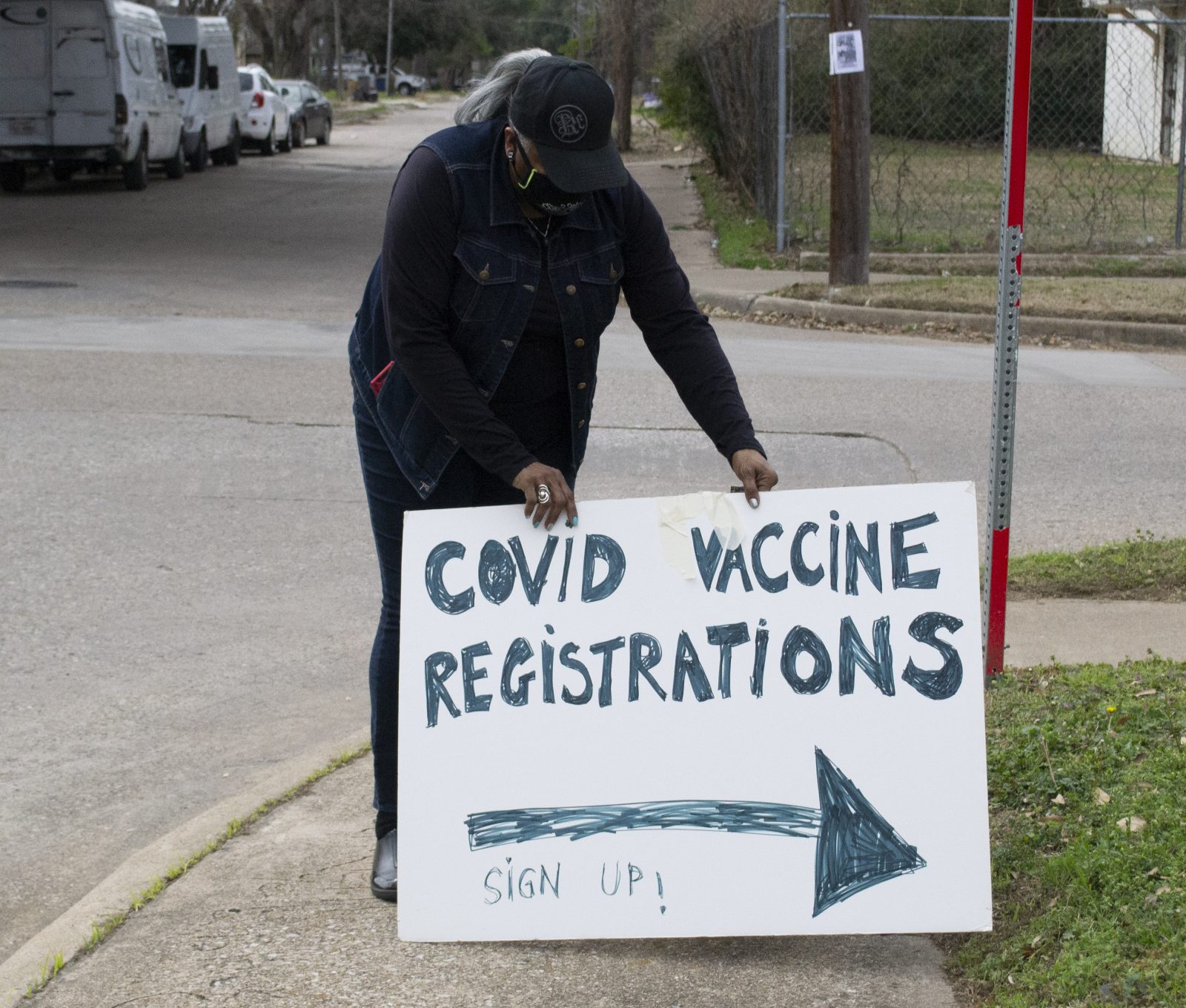
As Calora Hopkins waited for a box of food at Dallas Bethlehem Center, she watched as volunteers registered people to receive the COVID-19 vaccine, but she didn’t add her name to the registry.
It was February, and the vaccine was starting to become more available to senior citizens and people with underlying health conditions. Hopkins, 60, fit both categories, with a history of cancer and seizures. Dallas County was giving doses at its Fair Park hub, located in the same South Dallas neighborhood as Dallas Bethlehem Center.
Still, Hopkins said, “I’m waiting on the side effects. That’s the history of our vaccines — you wait about four to five months.”
By spring, she said, “we’ll be on a smooth rolling plan with no headaches or nothing. People get up there, they don’t have no appointments, it’s gone be like the flu shot.”
Hopkins’ prediction came true. At this point, anyone 16 or older can receive the vaccine, and providers are working to bring it directly to community centers. Several sites in South Dallas have been registering neighbors to receive St. Luke’s “Community” United Methodist Church hosted a vaccine clinic in early April, and Baylor Scott & White Health and Wellness Center at the Juanita Craft Recreation Center has made walk-up vaccines available at its partner site, Good Street Baptist Church.
As of this week, Texas data shows that 10,384 people in South Dallas zip codes 75210 and 75215 have received at least one dose of the vaccine, 40% of the population. A total of 4,175 people are fully vaccinated.
Now that anyone who wants a vaccine can get one, the challenge is overcoming barriers such as internet access needed to register for the vaccine and transportation needed to get to appointments, plus the even more daunting barrier of trust. In disinvested neighborhoods like South Dallas, Black residents have not forgotten the historical racism inherent in our country’s medical practices.
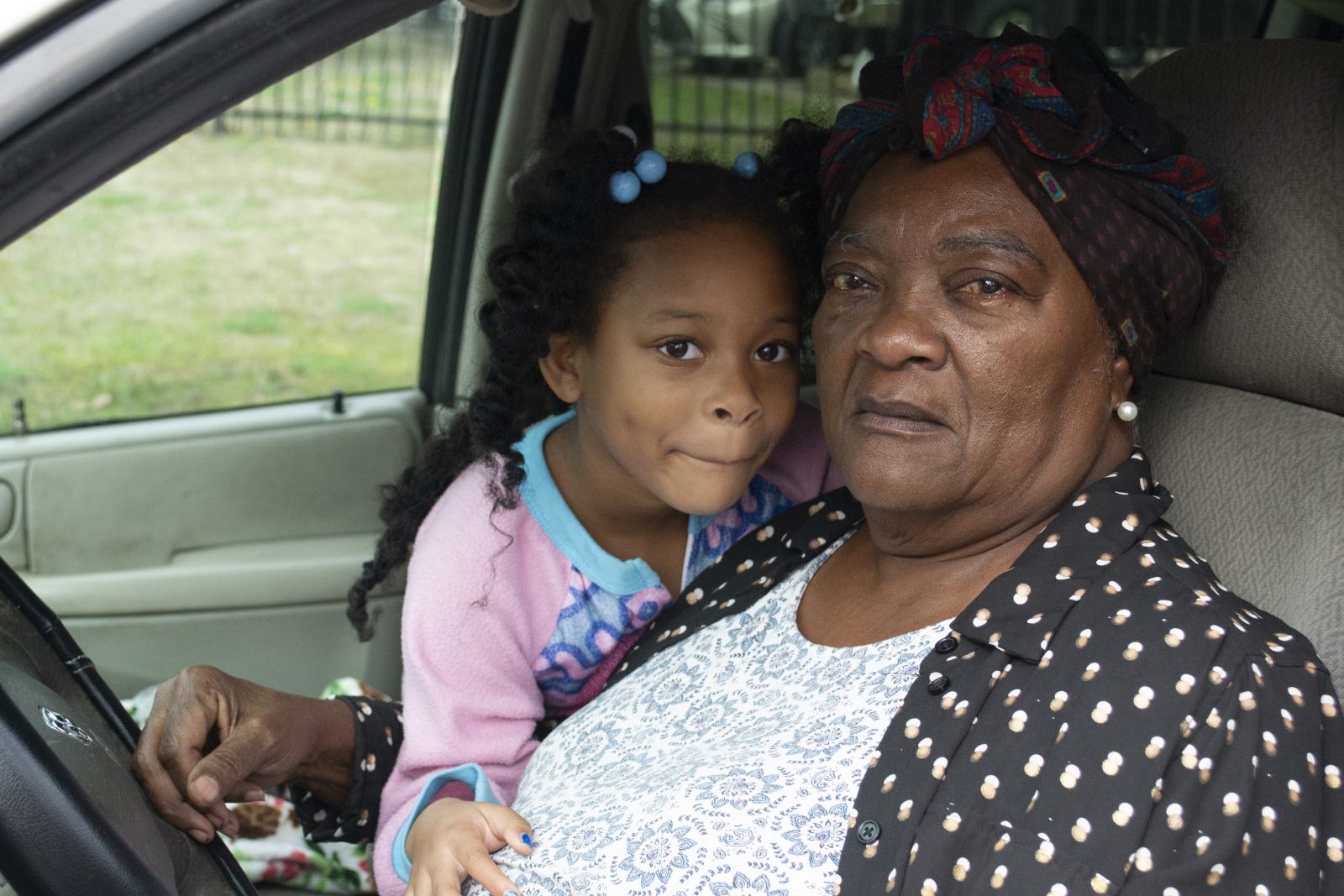
Since February, Fred Jones, interim director of Dallas Bethlehem Center, has been at the site every Thursday morning when people pick up boxes of food. He walks from car to car as they wait for their box to be loaded into the trunk, checking to see if anyone needs to be added to the county’s vaccine registry.
“It’s just about equalization,” Jones said in February, as Dallas Bethlehem Center began its vaccine registration process. “People didn’t want to wear masks, said it was a hoax, and they were the first ones in line to get the vaccine. They’re coming into this community to get it.”
“And this,” he added, gesturing to the cars in line and the people sitting on the curb, “this is the community.”
Jones was frustrated that even though local officials had placed the Dallas County vaccine hub at Fair Park in the predominantly Black South Dallas neighborhood, the people registering for and receiving vaccines were mostly white, and many came from suburbs outside of Dallas.
In response, several South Dallas sites began registering neighbors to be vaccinated. TR Hoover Community Development Center was the first, with Bonton resident Sherri Mixon adding vaccine registration to their bi-weekly drive-through food distribution. When District 7 Councilman Adam Bazaldua approached Mixon and other neighborhood leaders asking them to help with vaccine registration, Mixon told him, “I’m way ahead of you and I’m on the team.”
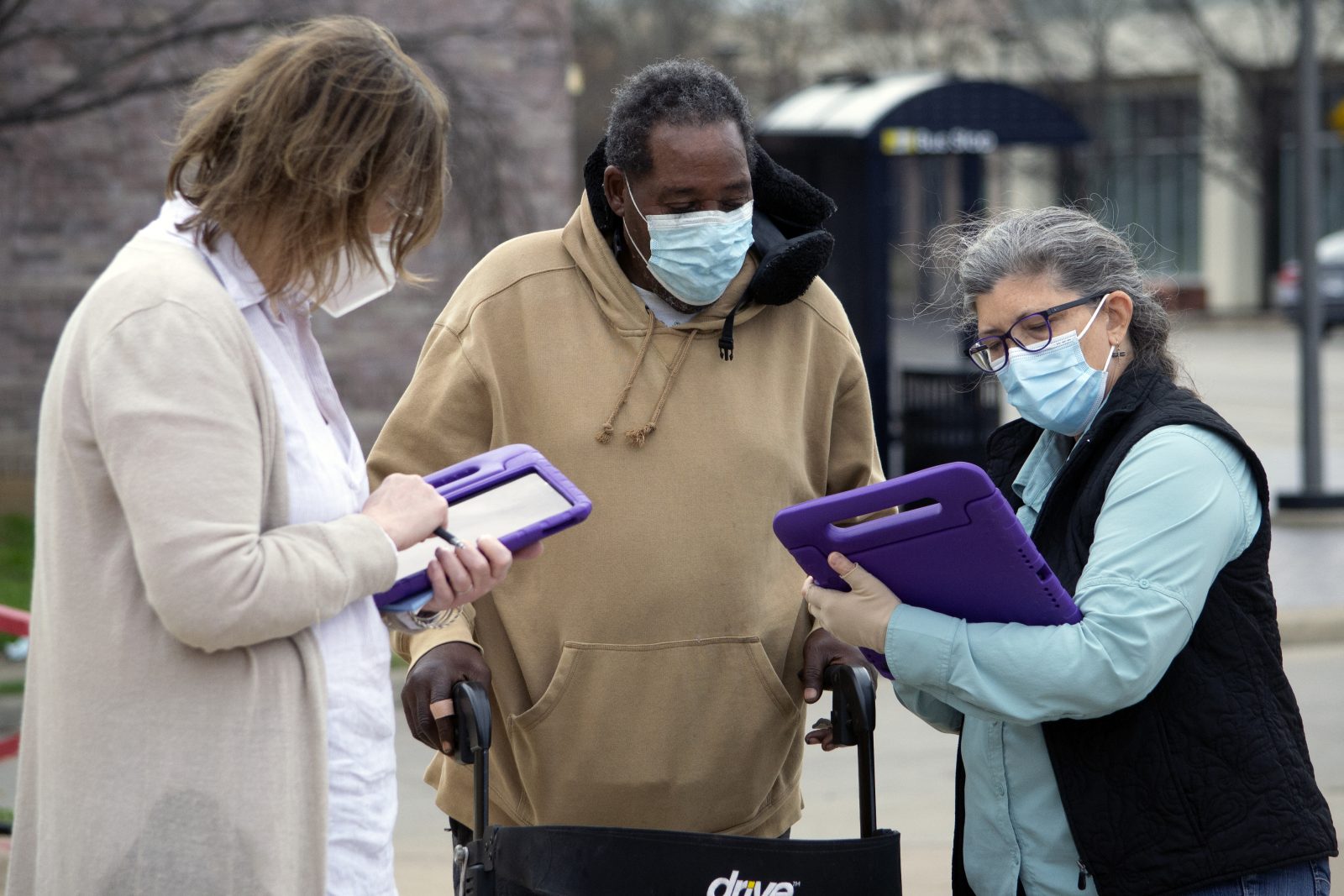
Senior citizens in Mixon’s neighborhood had trouble making vaccination appointments, including her parents, who have underlying health conditions. In February, Mixon waited with them for an hour and a half at the Kay Bailey Hutchinson Convention Center, only to find out that her mother wasn’t on the list and couldn’t get a vaccine, despite the printed appointment confirmation Mixon held in her hands.
“I was almost refusing to leave there,” Mixon said in February. “They have a lot of fixin’ to do.”
That initial vaccine push in January was “geared to the elderly who had access to certain information, therefore it did look like and was predominantly white,” Jones said in a more recent phone conversation.
“That’s changed,” he says, “and it’s not a factor anymore.”
Three months later, he says, the vast majority of neighbors who come to Dallas Bethlehem Center each week either have been fully vaccinated or have received their first dose. Now when Jones walks from car to car, “I can just wave because I know they’ve already gotten shots or they don’t want it.”
Those who refuse the vaccine may lack trust in the government, or they refuse it on religious grounds, with the faith that they will be “protected by God through Christ,” Jones says. Often, it’s some mixture of both, he says.
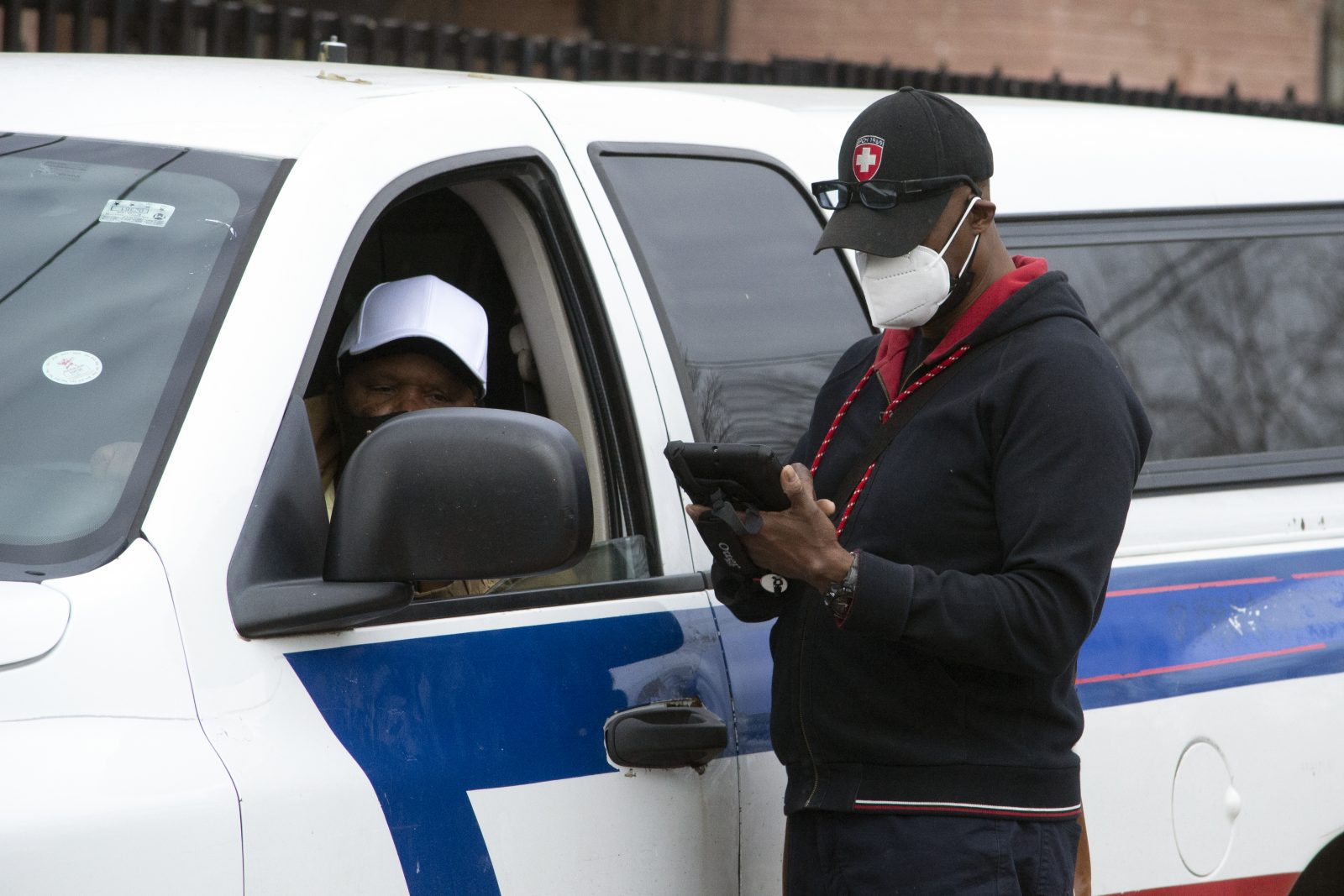
“There’s a deep distrust of the medical system, stemming from a history of discrimination and unethical medical experiments, such as the Tuskegee syphilis study,” says Vivian Bradley Johnson,Parkland Hospital’s senior vice president of clinical services.“This history has driven the high levels of vaccine skepticism in the Black community.”
Johnson, who is active in the African-American Alpha Kappa Alpha sorority and in her local church, lost an uncle to COVID-19 last fall. She is one of the leaders who oversees COVID-19 vaccine distribution at Parkland and has seen the virus’ disproportionate impact on Black and Latinx communities.
“People have to trust the science and believe that they’re hearing it from a trusted messenger,” Johnson says.
That’s why Parkland launched a campaign in March featuring community leaders sharing their vaccination stories. Bruce Fortner, senior pastor of The New Mount Moriah Missionary Baptist Church in South Dallas, received his first dose in March and encouraged others to be vaccinated.
“Because our membership is mostly 50 years old and older, these are the ones affected most by this pandemic,” Fortner says in the video. “One of the ways we as people, especially people of Christ, can protect others is by doing everything we can — taking the vaccine, social distancing, everything we can — to make sure we’re not putting them in a vulnerable position.”
Lifelong South Dallas resident Willie Mae Coleman, president of the Bertrand Neighborhood Association, is another who participated in the Parkland campaign. The 84-year-old received her first dose in January, wearing her “Good Trouble” mask. She experienced some chills and headache but took a Tylenol and felt fine again within a day.
Dr. Carolee Estelle, an U.T. Southwestern infectious disease physician and Parkland’s interim chief of infection prevention, has been making the rounds to educate in a virtual community tour.
“It’s very confusing out there,” Estelle said at February’s St. Philip’s community meeting. “Not everyone has access to the kinds of high-quality information I have because of my work, and also there’s tons of information on the internet that just makes it really hard.”
Estelle, who is Black, lets people know that the vaccine wasn’t created as quickly as they might think, that its development goes back to the first SARS outbreak in the early 2000s. She also likes to point out that a Black female physician, Dr. Kismekkia Corbett, oversaw the initial clinical trials.
“It’s easier to trust something if somebody is involved in it that looks like you,” Estelle says. Still, she points out in her community conversations, “trust isn’t given. Trust is earned. We cannot gain your trust back overnight. This is going to take a long time.”
Jones is similarly patient and understanding with neighbors who come to the Dallas Bethlehem Center each week.
“At my age,” says the 64-year-old, “I’ve learned not to give into conflicts of verbal discussion with individuals who seemingly have their minds made up.” If people are wearing their masks and following COVID protocols, “OK, well, I’m not going to trip on you. It’s not worth the extra fuss.”
In Dallas County, 46.5% of people have received at least one dose of the vaccine and 30% are fully vaccinated as of Monday, April 26. PCCI, a Dallas-based scientific data analysis organization, predicts that the county will reach herd immunity by late June. That prediction didn’t change when the FDA temporarily paused distribution of the Johnson & Johnson vaccine, after six people among the 7 million who had received the vaccine experienced a “rare adverse event” involving blood clots with low platelets.
Herd immunity means 70% to 80% of the population has either been infected with COVID-19 or has been vaccinated. It’s the reason Jones isn’t overly concerned with the few South Dallas neighbors he comes across who are still hesitant.
“If I get seven or eight out of 10, I’ll take that any day,” he says.
This story was co-published by our South Dallas media partner, the Dallas Weekly.
Share This Story, Choose Your Platform!
Keri Mitchell has spent 20+ years as a community journalist, including 15 years dedicated to community and civic journalism at Dallas’ Advocate magazines. She launched Dallas Free Press in early 2020 with the belief that all neighborhoods deserve reporting and storytelling that values their community and holds leaders accountable.
Mitchell says she is energized by “knowing our work is making an impact — listening to people, telling their stories with strong narratives paired with compelling data that leads to change. I also love spending time in our neighborhoods and with our neighbors, learning from them and working to determine how journalism can be part of the solution to their challenges.”
Mitchell is proud to be the winner of multiple awards during her journalism career including: Finalist in Magazine Feature Reporting (2018) and Finalist in Magazine Investigative Reporting (2017) from Hugh Aynesworth Excellence in Journalism, Best Feature Story (2011) from Texas Community Newspaper Association and Best Magazine Feature (2011) from Dallas Bar Association Philbin Awards.
Areas of Expertise:
local government, education, civic issues, investigative and enterprise reporting
Location Expertise:
Dallas, Texas
Official Title:
Founder + executive director
Email Address:
keri@dallasfreepress.com

